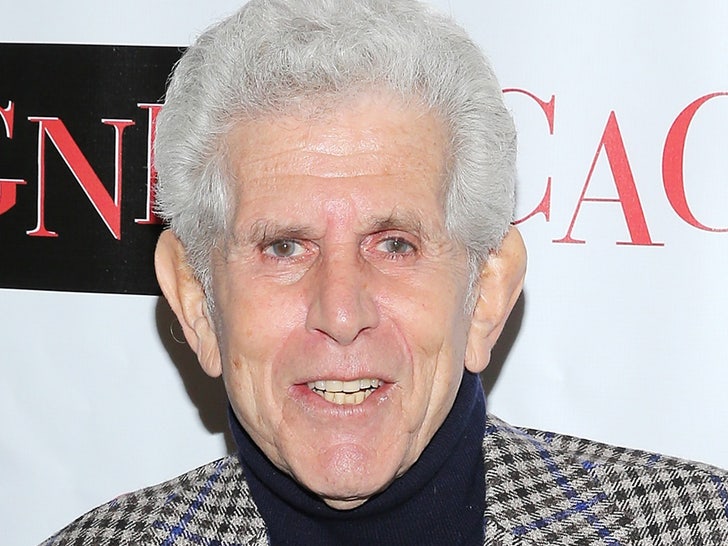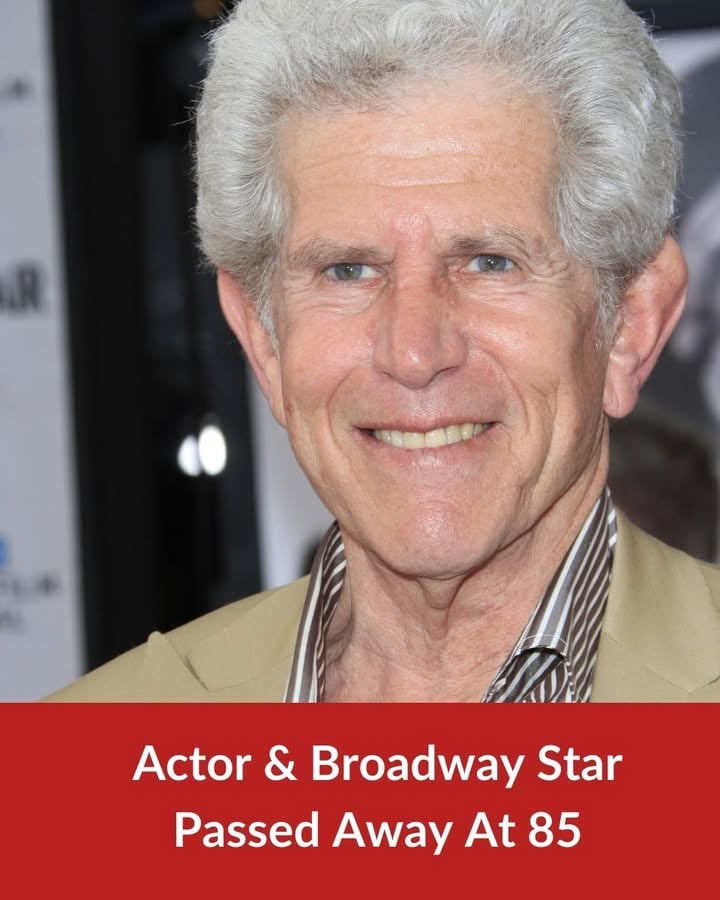Tony Roberts, the acclaimed American actor known for his memorable performances on Broadway and in several classic films, has died at the age of 85. His daughter, Nicole Barley, confirmed his passing to The New York Times, stating that he died at his home in Manhattan due to complications related to lung cancer. Barley is Roberts’ only surviving immediate family member.
Roberts’ career spanned more than five decades, covering stage, film, and television. With his sharp comedic timing, sophisticated charm, and versatility, he became a beloved figure in American theater and cinema.
Early Life and Education
David Anthony “Tony” Roberts was born on October 22, 1939, in New York City. Raised in a family with deep ties to the performing arts—his father, Ken Roberts, was a well-known radio announcer—Tony grew up surrounded by storytelling and performance. This early exposure inspired his own passion for acting.
Roberts attended Northwestern University, where he studied theater and began honing his craft. After graduation, he returned to New York to pursue a professional career on stage. His classical training and natural stage presence quickly earned him roles in major Broadway productions.

Breakthrough on Broadway
Tony Roberts made his Broadway debut in the early 1960s and rose to prominence with a string of successful performances that showcased both his comedic and dramatic range. One of his most significant early roles was in the 1965 Neil Simon play “Barefoot in the Park,” where he appeared alongside Robert Redford and Elizabeth Ashley. His performance was widely praised, and it set the tone for a career that would be closely associated with Broadway’s golden era.
In 1968, Roberts earned a Tony Award nomination for his role in the musical “How Now, Dow Jones.” The following year, he received another nomination for his performance in “Play It Again, Sam,” a play written by Woody Allen. These nominations cemented his reputation as a versatile and talented stage actor capable of carrying both comedic and romantic roles with ease.
Throughout his career, Roberts continued to return to Broadway, starring in productions such as “Victor/Victoria” opposite Julie Andrews, as well as revivals of classics that kept him a consistent presence on the New York stage. His ability to connect with live audiences made him a favorite among theatergoers.

Transition to Film
While Broadway was his first love, Tony Roberts became widely known to film audiences through his work with filmmaker Woody Allen. Roberts appeared in several of Allen’s most iconic movies, often playing witty and charming characters who provided a counterbalance to Allen’s neurotic protagonists.
Some of his most memorable film roles include:
-
“Play It Again, Sam” (1972): Roberts reprised his Broadway role in this romantic comedy, helping to establish his film career.
-
“Serpico” (1973): Directed by Sidney Lumet, Roberts played a supporting role in this critically acclaimed police drama starring Al Pacino.
-
“Annie Hall” (1977): As Rob, the protagonist’s best friend, Roberts delivered one of his most recognizable performances in what would become one of Allen’s most celebrated films.
-
“Manhattan” (1979): Roberts again appeared alongside Allen, contributing to the ensemble cast of this influential romantic drama.
-
“A Midsummer Night’s Sex Comedy” (1982): Roberts played one of the central roles in this whimsical period film.
Roberts’ natural comedic timing and polished screen presence made him a frequent collaborator with Allen throughout the 1970s and early 1980s. At the same time, he demonstrated his dramatic skills in Sidney Lumet’s “Just Tell Me What You Want” (1980) and other projects, balancing commercial success with artistic depth.
Television Work
In addition to his accomplishments in film and theater, Tony Roberts also appeared regularly on television. He made guest appearances in popular series including “The Love Boat,” “Law & Order,” and “Frasier.” His television work, while less central to his career than his stage and film roles, helped introduce him to new generations of viewers and showcased his adaptability across different formats.

Legacy in the Performing Arts
Tony Roberts’ career is often defined by his rare combination of classical theater training and modern comedic sensibility. His collaborations with Woody Allen captured a particular era of New York intellectual humor, while his Broadway work connected him to the longstanding traditions of American theater.
Roberts worked with some of the most prominent figures in entertainment, from Julie Andrews to Al Pacino, and his performances were consistently praised by critics for their intelligence and understated charisma. His contributions to both stage and screen earned him the admiration of audiences, peers, and theater historians alike.
Personal Life
Roberts kept much of his personal life private. He married his college sweetheart, Christine, though they later divorced. Their daughter, Nicole Barley, survives him. Throughout his career, Roberts was known to keep his focus on his craft rather than celebrity, preferring to let his work speak for itself.
He remained active in theater well into his later years, appearing in regional productions and Broadway revivals, demonstrating his lifelong commitment to performance. Interviews with Roberts in publications like Playbill and The New York Times often highlighted his deep respect for the discipline of acting and his gratitude for being part of the American theatrical tradition.

Tributes and Impact
Following the announcement of his passing, tributes poured in from colleagues, theater organizations, and fans. The Tony Awards organization and Broadway theaters expressed their condolences and celebrated his decades-long impact on the performing arts. Fellow actors and directors praised Roberts for his professionalism, generosity, and distinctive presence both onstage and on screen.
Many noted that Roberts’ performances helped define a specific era of New York theater and film, particularly through his recurring roles as a witty, urbane character. His work remains influential for younger performers who study his timing, delivery, and nuanced character portrayals.

A Distinguished Career Remembered
Tony Roberts’ passing marks the end of a remarkable career that spanned more than half a century. From his early Broadway successes to his memorable roles in film classics, he leaves behind a body of work that continues to resonate with audiences today. His performances in productions like “Annie Hall,” “Barefoot in the Park,” and “Play It Again, Sam” remain iconic examples of mid-20th-century American theater and cinema.
